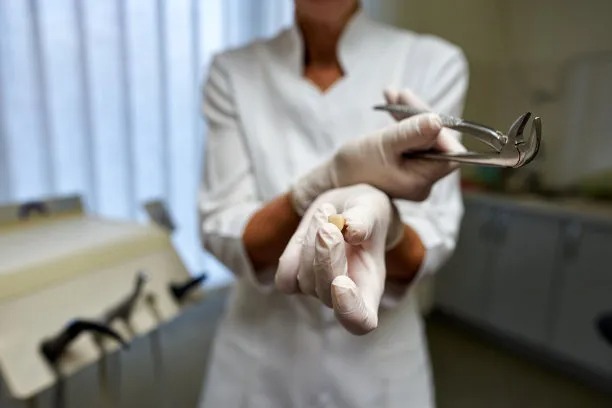Essential Precautions to Take Before Undergoing Dental Filling for Optimal Oral Health and Healing
Summary: Undergoing dental fillings is a common yet significant procedure aimed at restoring optimal oral health. However, prior to the treatment, taking certain essential precautions can greatly enhance the outcome and assist in the healing process. This article delves into four critical aspects: conducting thorough research, consulting with your dentist, preparing mentally and physically, and following post-treatment instructions. By addressing these areas, patients can ensure a streamlined experience that promotes not only effective treatment but also speedy recovery and long-lasting oral health.
1. Conduct Thorough Research on Dental Fillings

Before undergoing a dental filling, it is crucial to conduct thorough research about the procedure. Understanding what dental fillings entail, including the materials used and the techniques involved, can alleviate anxiety and prepare patients for what to expect. Fillings are typically made from materials such as silver amalgam, gold, or resin composites, each with distinct advantages and disadvantages. By familiarizing oneself with these options, patients can make informed decisions and engage in meaningful conversations with their dentist.
Additionally, reading patient reviews and testimonials can provide insights into the experiences of others with dental fillings. These firsthand accounts can help set realistic expectations regarding the pain level, recovery time, and overall satisfaction with the results. Knowledge is empowering; hence, patients should utilize reliable dental health resources and websites to augment their understanding.
Furthermore, it may be beneficial to explore the potential risks associated with dental fillings. Knowing both the benefits and risks can prepare patients not just for the procedure itself but for any questions or concerns they may have when discussing with their dentist. A well-rounded understanding of dental fillings promotes confidence and can contribute positively to the overall experience.
2. Consult with Your Dentist Before the Procedure
Having a thorough consultation with your dentist is one of the most critical precautions before undergoing a dental filling. This appointment should address any questions or concerns about the procedure, pain management options, and the aftercare process. An open dialogue fosters a better understanding of the procedure and reduces anxiety through clarity.
During the consultation, patients should share their dental history and any pre-existing conditions that may affect the treatment. This information is vital for the dentist to tailor the procedure to fit individual needs. Whether its addressing allergies to certain materials used for fillings or previous complications during dental treatments, full disclosure can greatly improve safety and efficacy.
Moreover, discussing anxiety and fears with the dentist can provide options such as sedation dentistry. Sedation can help calm nerves and create a more comfortable environment, making the filling procedure more manageable. Thus, a comprehensive consultation can not only prepare patients for the filling but also enhance their experience significantly.
3. Prepare Mentally and Physically for Your Appointment
Mental preparation is equally essential when getting ready for a dental filling. Patients should take the time to practice relaxation techniques, such as deep breathing or meditation, to ease any pre-treatment anxiety. A calm mind will help in creating a more positive experience during the procedure.
Physically preparing for the appointment is also important. Ensuring that you’ve had a light meal beforehand can help maintain energy levels without feeling overly full during the procedure. Staying hydrated is crucial but consider avoiding caffeine or alcohol as they may increase anxiety. If sedation will be used, its important to follow your dentists instructions regarding fasting prior to the appointment.
Additionally, arranging for transportation to and from the dental office may ensure a stress-free experience. After dental fillings, especially if sedation is used, patients might feel drowsy or disoriented. Having a friend or family member available to assist can alleviate unnecessary stress and ensure a smoother recovery process.
4. Follow Post-Treatment Instructions Carefully
One of the most significant aspects of undergoing dental fillings is adhering to the post-treatment instructions provided by your dentist. These guidelines aim to ensure optimal healing and long-lasting results. Patients should carefully follow instructions related to diet, pain management, and monitoring for any unusual symptoms.
After the procedure, it’s essential to avoid hard or sticky foods for a specified period to prevent damaging the filling. Additionally, refraining from consuming extremely hot or cold beverages can help avoid discomfort during the initial healing phase. Pain relief medications may be recommended; adhering to the prescribed dosage will contribute to a more comfortable recovery.
Lastly, scheduling a follow-up appointment is also crucial in ensuring that the filling is settling properly and that there are no complications. Regular dental check-ups become even more essential after restorative procedures like fillings, as they help maintain and promote optimal oral health.
Summary:
Taking essential precautions before undergoing dental fillings not only enhances the patients experience but also ensures effective treatment outcomes. From researching the procedure to consulting with the dentist and preparing mentally, each aspect plays a pivotal role in successful healing. Following post-treatment care instructions further solidifies the benefits of the filling. Therefore, patients should approach this dental procedure with care and informed awareness for optimal oral health.
This article is compiled by Vickong Dental and the content is for reference only.



